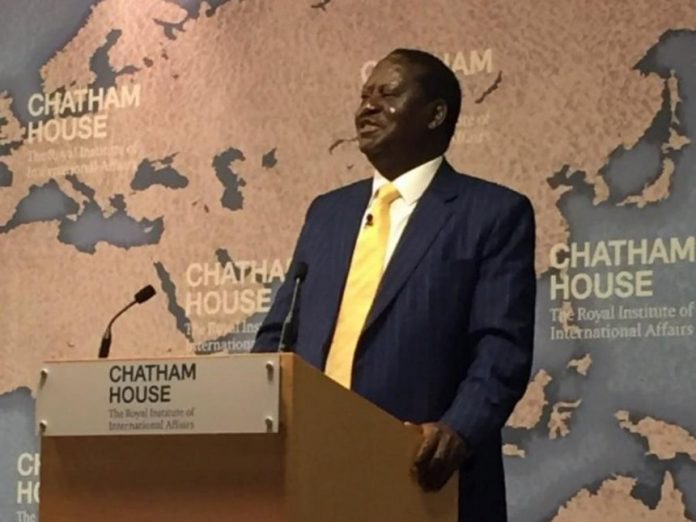From the pessimism of the past when Africa was seen simply as a basket case ruined by conceited and ruthless dictators, Africa has now become a puzzling case of rapid economic growth in the midst of promising political changes.
Nonetheless, this “new dawn” may easily be jeopardized by reluctance to embrace far-reaching democratization at the political level and progressive reforms at the economic level.
Both require committed political leaders with long term visions that were typical of our founding fathers like Kwame Nkrumah, Julius Nyerere and, more recently Nelson Mandela.
Yet democracy is in jeopardy in Africa in the second decade of the 21st Century. Many pro-democracy activists in Africa are no longer sure they have the support of the West.
Many are not clear if it is still the policy of the West to stand only with regimes that promote open, free and fair elections, transparency, good governance and human rights or we are in the era of anything goes.
There are indications that the West is turning its back on democracy by cutting funding, endorsing regimes with dubious records and abandoning democracy activists and civil society.
But let me begin with what democracy has done in Africa.
When the Berlin Wall fell, only three sub-Sahara African countries were classified as democracies—Botswana, Gambia and Mauritius. Elsewhere, presidents for life and single party dictatorships held sway.
A seismic change has since happened. Out of 55 countries that make Africa today, over 25 are considered democracies of varying degrees.
Africa had 22 competitive elections in 2012 alone. At least a dozen sub-Saharan African nations have held or are due to hold presidential or parliamentary elections this year.
One of the shortest-lived military coups took place in Burkina Faso early this year. It was the country’s seventh military coup in 50 years and was staged by presidential guards loyal to deposed ex-president Blaise Compaore. It lasted just seven days.
The Financial Times newspaper quoted one of the coup leaders saying “we realized the people were not in favour of that. That’s why we quite simply gave up.”
As the Burkinabe repulsed coup leaders, in Nigeria, voters elected Muhammadu Buhari as President, making him the first opposition candidate to defeat a sitting Nigerian president through the ballot. And the defeated incumbent Goodluck Jonatham, conceded defeat.
The gender trap too is giving way in Africa’s politics. The US is having its first female Presidential candidate in Mrs Hillary Clinton. The UK has its second female Prime Minister in Madam Theresa May.
Africa on the other hand has had three female heads of State this century: Ellen Johnson Sirleaf in Liberia, Joyce Banda in Malawi and Ameenah Gurib-Fakin in Mauritius.
Most countries in sub-Saharan Africa are currently witnessing lower economic growth rates than those seen over the past decade as a result of the continued adjustment to lower commodity prices and higher borrowing costs.
However, for much of the past 20 years, some of the world’s ten fastest-growing countries have been African. Even with slowed growth, Africa is still growing faster than developed economies.
Secondary-school enrollment in sub-Sahara Africa grew by 48 per cent between 2000 and 2008 while malaria deaths declined by 30 per cent in some countries and HIV infections dropped by up to 74 per cent.
Life expectancy has also surged by between 20 and 42 per cent across Africa since the year 2000.
Of the 37 countries to have seen life expectancy rise by more than 10 per cent since 2000, 30 are in sub-Saharan Africa. In Malawi for instance, life expectancy rose from 44.1 years in 2000 to 62.7 in 2014, according to the World Bank.
In the past decade, real income per person increased by more than 30 per cent. In the previous 20 years, it shrank by nearly 10 per cent.
The World Economic Forum places Ivory Coast as Africa’s fastest growing economy, with expected GDP growth of 8.5 per cent. It is followed by Tanzania at 7 per cent, Senegal at 6.6 per cent, Djibouti 6.5, Rwanda 6.3, Kenya 6, Mozambique 6, Central African Republic 5.7, Sierra Leone 5.3 and Uganda 5.3.
The message is clear: countries that have adopted accountable and democratic governance systems have made strides on the social and economic front.
These countries are reaping the democracy dividend that ensures sound management of public resources and political stability through regular, credible elections and peaceful and predictable transfers of power.
These gains created a prolonged period of stability that allowed a new wave of investment.
However, as I said at the start, these gains are threatened by absence of sustained momentum for deepening democracy in Africa.
I want to agree with former UN Secretary General Koffi Annan who said… “Democracy is not just about one day every four or five years when elections are held, but a system of government that respects the separation of powers, fundamental freedoms like the freedom of thought, religion, expression, association and assembly and the rule of law … Any regime that rides roughshod on these principles loses its democratic legitimacy, regardless of whether it initially won an election.”































